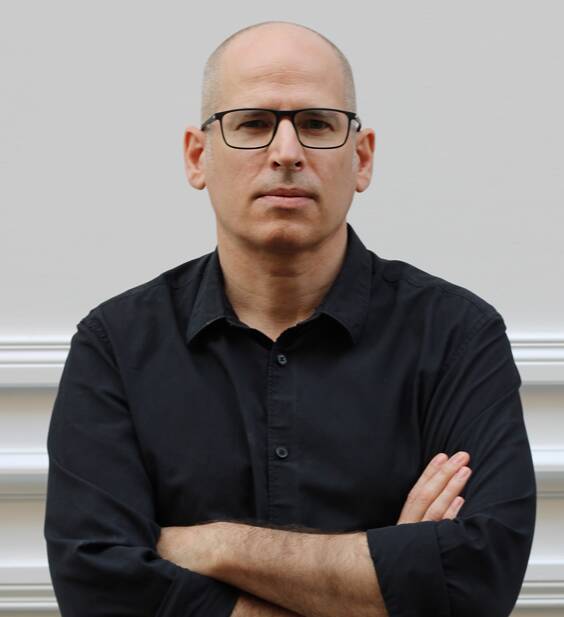The last time we saw Laure Calamy, she was chasing her married lover on a hiking holiday in rural France. Her character ends up spending most of the time alone with the donkey carrying her pack, but the audience falls for her, anyway. The success of the delicious French comedy, Antoinette in the Cevennes, had a lot to do with Calamy's irresistible performance, every bit as engaging as her regular turn in the ensemble of characters of the hit TV series, Call My Agent.
The pace steps up from a hike to a run in her latest film, Full Time, written and directed by Eric Gravel, a Canadian filmmaker from Quebec who is living in France. From the moment she wakes in the morning to the moment she falls into bed at night, Julie (Calamy) is running against the clock to hold everything together: family, work and the childcare arrangements that underpin it.
Her job as head chambermaid at a five-star hotel in Paris has exacting standards for staff like herself, tasked with creating an oasis of calm for guests in a busy city. Although Julie gives every impression of being supremely capable, the public transport strike is making her life extremely difficult because she is always running late. Combine these tensions with the commuter world of crowded railway carriages and roads clogged with cars as she tries to get to work and back.

At 88 minutes, Full Time is a relatively short feature with the immersive power of a longer film and a stunning lead performance. Full Time won the best director and best actor awards in the Horizons section of last year's Venice International Film Festival, that celebrates new trends or directions in the language of film.
Gravel has been watching people with lives like Julie for some time. When I spoke with him on Zoom recently, he mentioned that he commutes into Paris from a home in the country, too.
"At the beginning I wanted to base the lead character on these people. I live in the countryside and go to Paris often, doing this commute, and realised that I was seeing the same people, mostly women, almost every day. I wanted to tell their story.
"I think the film speaks to people everywhere, sadly, because we all live like that. We all struggle and run like chickens."
The harried Julie is, in fact, inspired by the director's father. Gravel was brought up by his dad in Montreal, also a commuting worker. The filmmaker's sensitivity to the demands of such a situation was fine-tuned while he was young, as the child of a single-parent father.
"He did the commute by car, and I saw him struggling all his life. As a child you see that and you think he doesn't have any life choices, he just seems to react. He doesn't have the luxury of choosing how he wants to live."
In Full Time, Calamy's Julie is a single, working mother with two young children living on the outskirts of Paris. She is determined to retain her house and garden in a dormitory suburb for quality of life, but the trade-off is a long commute. We see her accomplish the high-wire act each day, snapping into action the moment the alarm goes off, holding on to a difficult and demanding job, managing relations with the childminder who seems to be looking for an out.

It is slowly revealed that Julie has more options than one might suppose. She is applying for other, better-paid, more highly qualified jobs, that are potentially more demanding and will likely leave her and the kids even less time together. It is interesting to realise the assumptions we can make about characters before we get to know them.
The solidarity of the general public towards the public transport strike is interesting.
"Yes, I was writing before the strikes of 2019-20, and just before the 'yellow vest' movement. I had the strikes of 1995 in mind. When I was in Paris as a student there were very big strikes, for a month. But there was great solidarity. Everyone was helping each other and the city had a different feeling."
The propulsive, urgent score by composer Irene Dresel is a great match to this febrile environment. Where does it come from?
"The running non-stop may be the kind of music I have in my head while I do this commute. I wanted the feeling of New Hollywood. Music of the 1970s, which she supplied. Irene is a concert artist, who brings a singular touch. And it's her first film score."
As tensions escalate, audiences may be wondering how things will be resolved. Where it will all end?

"It's a question more than an answer. I think it's a way of asking everybody this question: 'What we are doing wrong in our lives?'
"I was also trying to find the line between drama and melodrama, which I wanted to avoid. I didn't want a melodrama," Gravel says.
This is Gravel's second feature. Crash Test Aglae, his first, explored similar territory.
"That was about where we find the balance between our work and our own personal lives, too. You know, the big question, something I'm very preoccupied by."
In the hands of another director with another perspective, Full Time might have been a bit grim, a picture of drudgery. But Gravel and Laure have managed to draw some humour and humanity from the situation. How did you do that?
"It mostly came from Laure's energy, I think. You know as an actress she has a lot of sparkle, a lot of energy. She has a light in her, and I knew she would be great."
An actor with, as Gravel points out, a happy knack for combining comedy and drama.
Full Time is in cinemas now.

